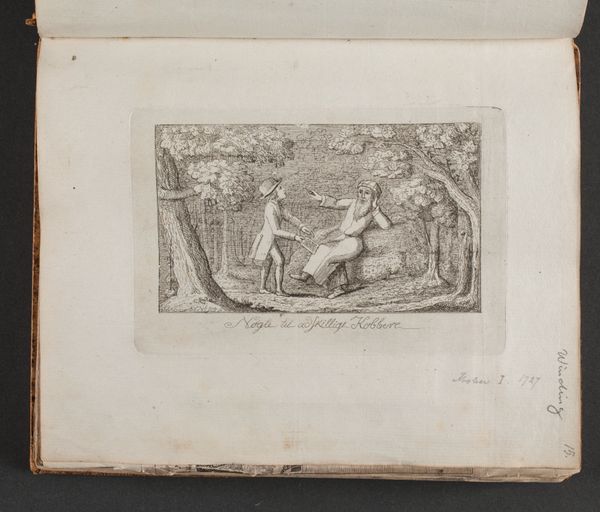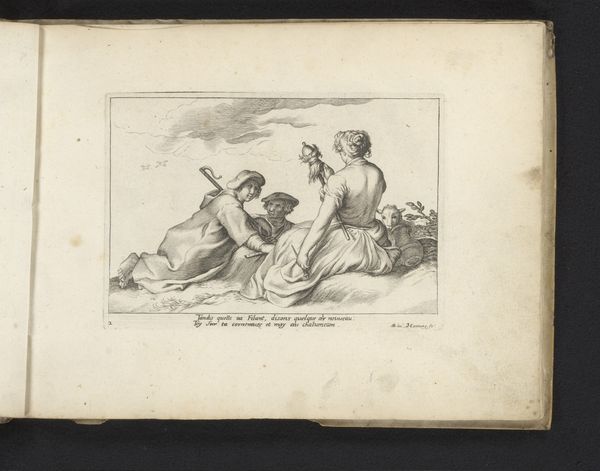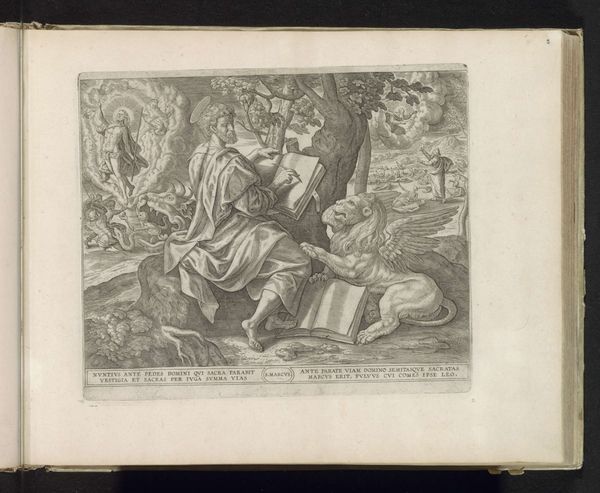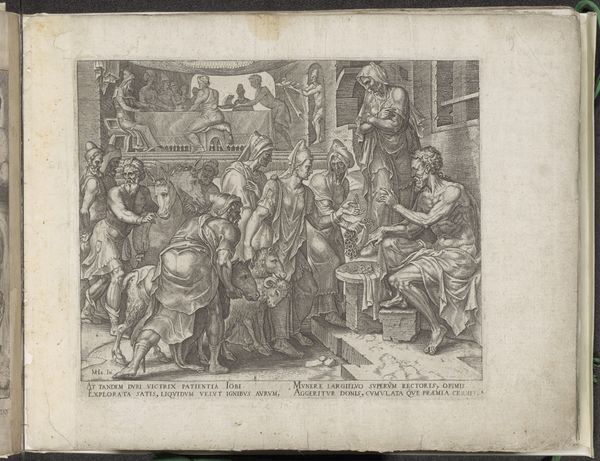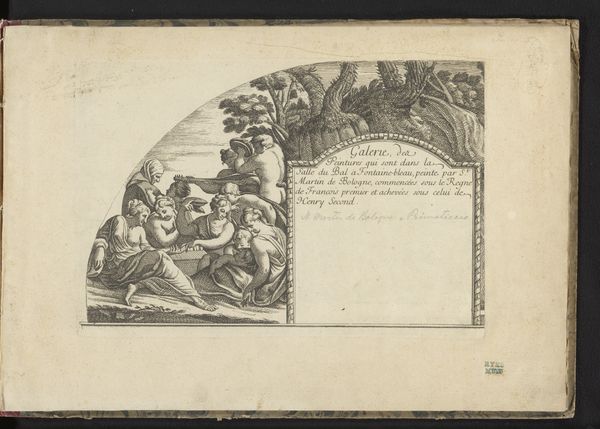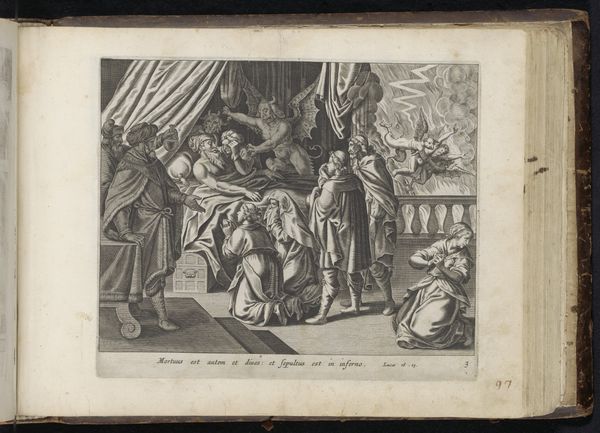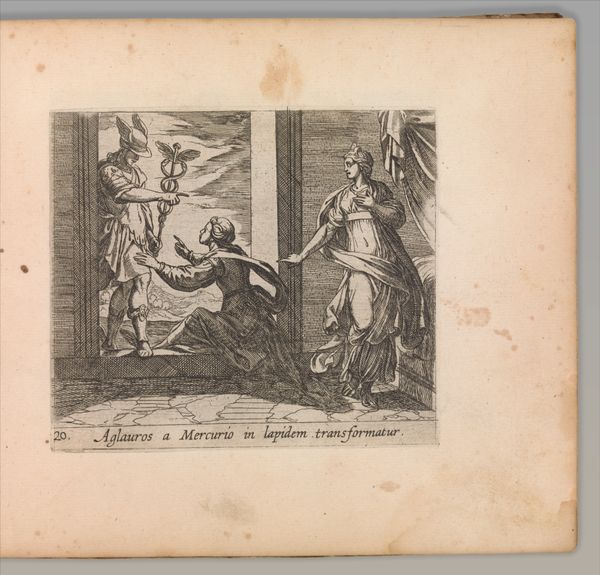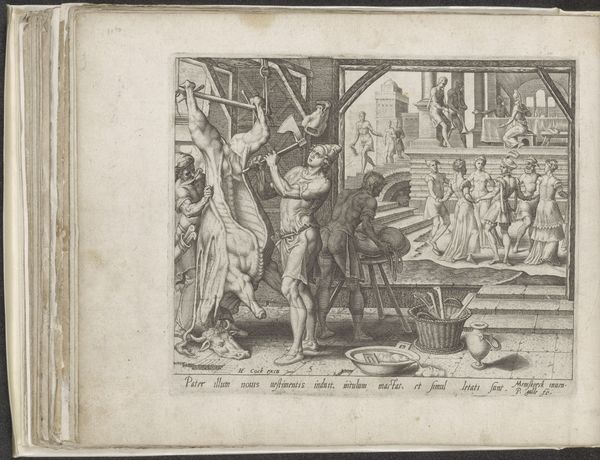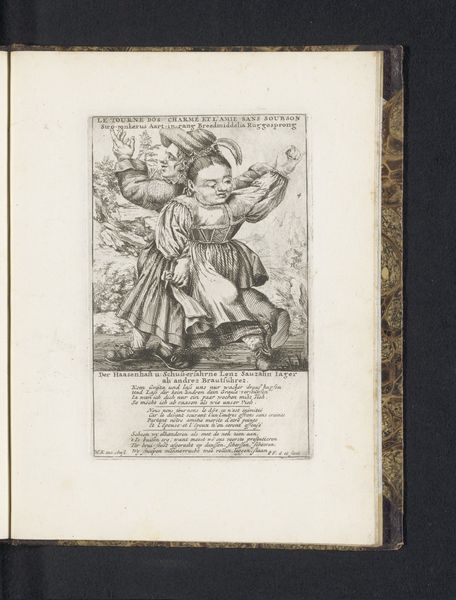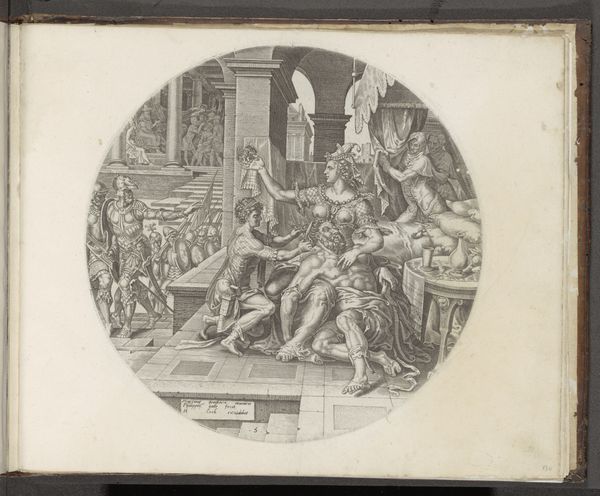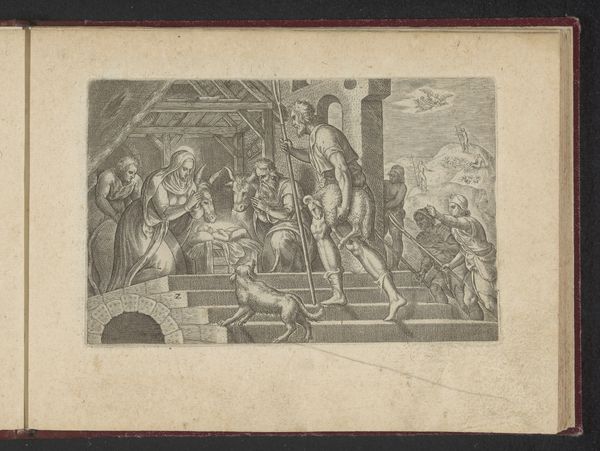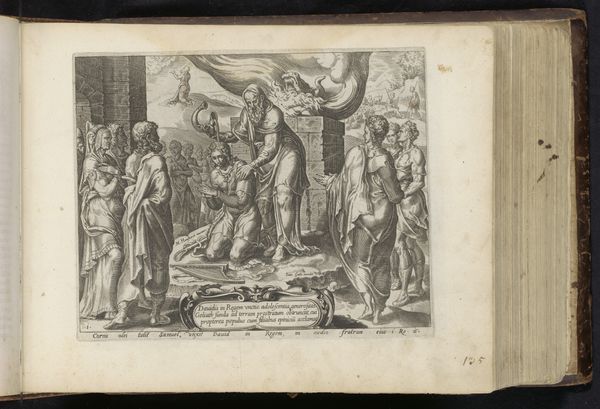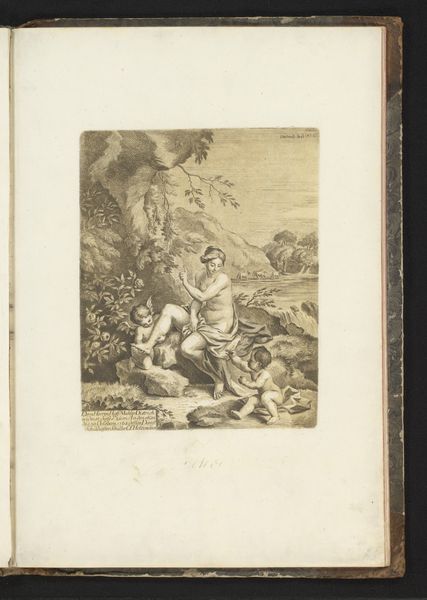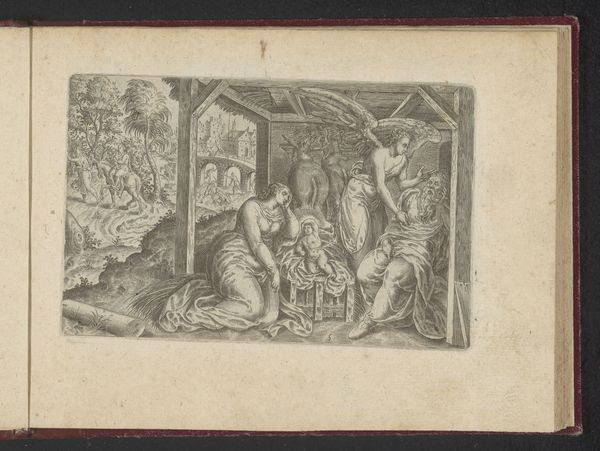
print, engraving
#
allegory
#
baroque
#
ink paper printed
# print
#
pen-ink sketch
#
history-painting
#
engraving
Dimensions: height 304 mm, width 192 mm
Copyright: Rijks Museum: Open Domain
This print, made by Jean Lepautre around the mid-17th century, showcases the power of line engraving. Look closely at the density of marks, and how they create shading and depth. The image depicts the personification of the Swedish realm. Lepautre would have used a tool called a burin to carve these lines into a copper plate. Ink would then be applied, and the plate pressed onto paper. The final result has a crisp, precise quality, well-suited to the allegorical subject matter. Engraving was a highly skilled, labor-intensive process, often used for reproducing existing images or creating elaborate decorative prints like this one. It was a key technology in the dissemination of knowledge and the construction of national identity in early modern Europe. Consider the sheer amount of labor that went into the making of this print, and how this work translates into a powerful emblem of Swedish authority. This reminds us that even seemingly simple images are the product of complex social and technical processes.
Comments
No comments
Be the first to comment and join the conversation on the ultimate creative platform.
